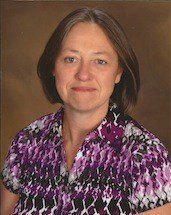 Mark Hurd, CEO of enterprise giant Oracle, is pushing through big changes at the Redwood Shores, Calif. company, directing its business more and more toward the cloud.
Mark Hurd, CEO of enterprise giant Oracle, is pushing through big changes at the Redwood Shores, Calif. company, directing its business more and more toward the cloud.
“We made the decision to go at this hard three or four years ago, changing virtually everything in the company,” Hurd says. “We made the decision to build all these global data centers, to deploy this technology and to do it fast.”
Oracle has long been the backbone of many corporate companies’ operations, and with its growing cloud capabilities, businesses of all sizes can connect their companywide operations anytime, anywhere and from any device. With 430,000 customers in 175 countries, Oracle provides leading-edge capabilities in software as a service, platform as a service, infrastructure as a service, and data as a service.
Customers can subscribe to more than a thousand software-as-a-service (SaaS) applications, including enterprise resource planning, enterprise performance management, supply chain management, human capital management, and customer experience. Oracle also provides industry-specific applications for running a customer’s core business, on premises or in the cloud, for more than two dozen industries.
Oracle’s open platform-as-a-service (PaaS) offerings enables developers, IT professionals, and business leaders to develop, extend, connect and secure cloud applications, share data, and gain insights across applications and devices. Oracle’s infrastructure-as-a-service (IaaS) capabilities enable companies to run any workload in the cloud, providing compute, storage, network, container services and more. Oracle Database Cloud Service makes it easy to migrate enterprise workloads to the cloud. Available in the cloud or on premises, the database works seamlessly in hybrid environments.
“We have more application offerings than anybody else,” Hurd, told CNBC. “We’re competing in more categories, franky the biggest categories. For us it really is the bigger picture not just the competition in one segment.”
The next direction for the company is investment in artificial intelligence.
“We believe the application of AI, pattern matching, whatever word you want to use for the technology … is really getting it integrated and embedded into the applications,” he says.
A 30-year veteran of the technology industry, Hurd joined Oracle in 2010. He manages corporate direction and strategy, facilitating company activity in consulting, sales, marketing, alliances and channels, and support. Hurd is also responsible for Oracle’s global business units for industries, creating products for specific markets and industries such as telecommunications, financial services, health sciences, and utilities. Since joining Oracle, Hurd has worked to share Oracle’s strategy and vision with customers, partners, shareholders, and investors.
In 2007, Hurd was recognized by Fortune magazine as one of its 25 Most Powerful People in Business. He has been named multiple times by Business 2.0 magazine as one of the 50 Who Matter. Hurd was featured several times in Barron’s in the publication’s Best CEOs lists. In 2008, the San Francisco Chronicle named him CEO of the Year.
Mark Hurd is No. 75 on Chief Executive and RHR International’s CEO1000 Tracker, a ranking of the top 1,000 public/private companies.
Headquarters: Redwood, CA
Number of employees: 136,000
Age: 55
Undergraduate degree: University of Pennsylvania
Graduate degree: University of Pennsylvania
Previous position: Hewlett-Packard CEO
First job: Sales/business development

Chief Executive Group exists to improve the performance of U.S. CEOs, senior executives and public-company directors, helping you grow your companies, build your communities and strengthen society. Learn more at chiefexecutivegroup.com.
0

1:00 - 5:00 pm
Over 70% of Executives Surveyed Agree: Many Strategic Planning Efforts Lack Systematic Approach Tips for Enhancing Your Strategic Planning Process
Executives expressed frustration with their current strategic planning process. Issues include:
Steve Rutan and Denise Harrison have put together an afternoon workshop that will provide the tools you need to address these concerns. They have worked with hundreds of executives to develop a systematic approach that will enable your team to make better decisions during strategic planning. Steve and Denise will walk you through exercises for prioritizing your lists and steps that will reset and reinvigorate your process. This will be a hands-on workshop that will enable you to think about your business as you use the tools that are being presented. If you are ready for a Strategic Planning tune-up, select this workshop in your registration form. The additional fee of $695 will be added to your total.

2:00 - 5:00 pm
Female leaders face the same issues all leaders do, but they often face additional challenges too. In this peer session, we will facilitate a discussion of best practices and how to overcome common barriers to help women leaders be more effective within and outside their organizations.
Limited space available.

10:30 - 5:00 pm
General’s Retreat at Hermitage Golf Course
Sponsored by UBS
General’s Retreat, built in 1986 with architect Gary Roger Baird, has been voted the “Best Golf Course in Nashville” and is a “must play” when visiting the Nashville, Tennessee area. With the beautiful setting along the Cumberland River, golfers of all capabilities will thoroughly enjoy the golf, scenery and hospitality.
The golf outing fee includes transportation to and from the hotel, greens/cart fees, use of practice facilities, and boxed lunch. The bus will leave the hotel at 10:30 am for a noon shotgun start and return to the hotel after the cocktail reception following the completion of the round.